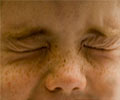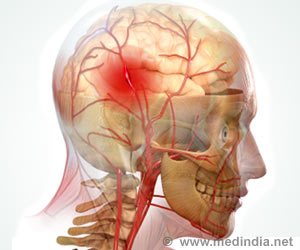UK boy has been diagnosed with a rare condition that can literally startle him just by everyday incidents like a passing dog on the street or even by a packet of blueberries being opened.

Jacob has hyperekplexia, also known as startle disease, which causes his body to overreact to shocks and make his muscles tense up. This disease is thought to be found in just 70 families in the world.
At eight months old, Jacob was diagnosed with this inherited neurological condition, but he showed symptoms in feeding from his birth. While being breast or bottle fed, the boy would get spasms if his nose touched the teat, so he had to be tube-fed.
Jacob's father Allan, from said he has lost count of the number of times his son was rushed to hospital by ambulance, as some seizures and spasms could make the boy choke as his throat goes rigid.
Mrs Madgin, a teaching assistant said, "Anything can set off Jacob’s condition and the unpredictably of the illness makes it almost impossible to know when he will have a serious episode. When he chokes, everything respiratory goes into spasm. He doesn't alert anybody, he doesn't cry or cough there's none of that, he just goes blue and collapses." Her son's condition makes her constantly worry for him.
Jacob has been treated with muscle-relaxing drugs and has been showing a some improvement. The family is slowly introducing Jacob to pets with a cat and a puppy, which he seems to love. Mrs Madgin has been determined to let him do activities, and tries to never stop him trying new experiences like climbing and taking dance classes. He starting school this year.
A two-year study by Dr Caroline Johnston, research evaluation manager at Action Medical Research on genes that cause hyperekplexia says, "Understanding the genetic causes of startle disease is vital to ensure that babies get the correct diagnosis and treatment."
Advertisement
Advertisement








